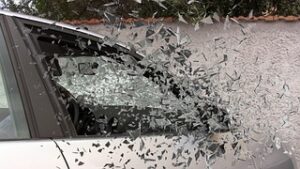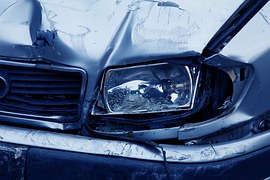Who Determines Who Is At Fault After A Baltimore Car Accident?
Who is “at fault”? A key question in the wake of any automobile accident claim. There are typically four decision makers involved in deciding who is at fault for causing a Maryland car accident.
- Police Officers
- Insurance Claims Adjusters
- Your Personal Injury Attorney
- A Jury or Judge
Initially, the officer that investigates the accident scene, or arrives in the wake of the accident to facilitate the exchange of information between the drivers, is going to give an opinion about who caused the accident. Now, officers don’t always complete full police reports that detail all the happenings leading up to the accident.

Particularly where there is minimal property damage, or no apparent significant injury at the accident scene, the officer is unlikely to create a police report. It’s difficult to disagree with the judgment exercised in these situations. Certainly, reasonable people would likely agree that the officer has more important duties than handling what is likely a small civil claim. In these circumstances, the officer most likely will complete a form that has the information regarding the involved drivers, their licensure information, and their insurance information. When the officer does complete a full police report, typically that will contain the officer’s conclusions about who caused the accident, based on what they are able to glean from interviewing the drivers and any witnesses, as well as their personal observations at the accident scene.
The next individuals likely to weigh in on fault and causation after a car accident in Maryland are the claim’s adjusters for the involved insurance companies. Claims adjusters will typically speak to their own insured person, sometimes to the other driver, and they may, or may not, consult and rely on a police report if there is one. Perhaps these adjusters review photos of an accident in making their respective decisions on liability. I think it is safe to assume that most claims adjusters will believe their own insured and disbelieve the opposing driver where there is a difference of opinion or account. Where there is such a difference, litigation is typically required.
The next individual who will have an opinion of importance regarding causation after a Maryland automobile accident is, of course, your attorney, or the attorneys with whom you consult.
An experienced, seasoned personal injury attorney has likely evaluated hundreds, or perhaps thousands, of automobile accidents over the course of his or her career.
An experienced lawyer has valuable courtroom experience that he or she can bring to the conversation in making fault based arguments in a contested liability cakes. The attorney is going to of course rely upon what you tell them about the accident, scene photos, the police report, and perhaps independent examination of the vehicles or the scene. A skilled personal injury attorney Attorney Eric T. Kirk however is also going to bring to the table a knowledge of Maryland law concerning negligence causation rules of the road and damage.

The final individual, or individuals, who will give an opinion regarding fault after a car collision are what we called the finders of fact. In a bench trial, that would be the judge. In a jury trial that would be the jurors. These decisions about who caused the accident are final and conclusive [absent an appeal]. Judges and jurors rely on all of the evidence that is admitted in court, as well as the arguments of the involved lawyers about how the law applies to that evidence.
So, those are the principal players, and their opinions and conclusions about fault and causation in the wake of a Maryland car accident have significance at each stage of the process. For example the police officer’s conclusions can influence an adjuster. A diligent and prepared attorney can influence that same adjuster’s opinion. Moreover
….the arguments of seasoned counsel can often times sway a judge or a juror’s opinion about who caused an accident.
Many states have adopted a system of comparative fault. Under those methodologies the relative degrees of fault and causation are analyzed and ultimately set off against one another. In Maryland, that analysis is unnecessary. In Maryland there are only three possible determinations. You caused the accident; you didn’t cause the accident; or, you contributed to the accident. As we discussed elsewhere, the concept of contributory negligence is a complete bar to recovery under Maryland law.
The factors that go into a lot of determination are going to vary greatly from case to case, and ultimately hinge on the information available. Certainly, though, some common elements do recur.
- The police report
- Statements of the parties and witnesses
- Statements of the investigating officer
- Scene photographs of the invite
- Any surveillance or dash cam footage
- The opinions of an accident reconstructionist
- The opinions of the car damage appraiser
- Legal principles
- The rules of the road and other Maryland law applicable to liability, fault and causation
To the extent these are applicable, or available, each will likely be considered in determining who caused a Maryland automobile accident.



